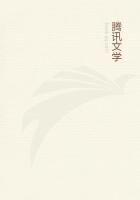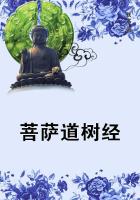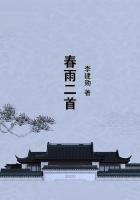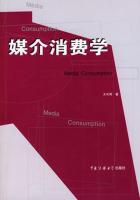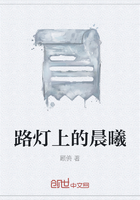The powerful effects of Lyell's works could formerly be plainly seen in the different progress of the science in France and England. The present total oblivion of Elie de Beaumont's wild hypotheses, such as his 'Craters of Elevation' and 'Lines of Elevation' (which latter hypothesis I heard Sedgwick at the Geological Society lauding to the skies), may be largely attributed to Lyell.
I saw a good deal of Robert Brown, "facile Princeps Botanicorum,"as he was called by Humboldt. He seemed to me to be chiefly remarkable for the minuteness of his observations, and their perfect accuracy. His knowledge was extraordinarily great, and much died with him, owing to his excessive fear of ever ****** a mistake. He poured out his knowledge to me in the most unreserved manner, yet was strangely jealous on some points. Icalled on him two or three times before the voyage of the "Beagle", and on one occasion he asked me to look through a microscope and describe what I saw. This I did, and believe now that it was the marvellous currents of protoplasm in some vegetable cell. I then asked him what I had seen; but he answered me, "That is my little secret."He was capable of the most generous actions. When old, much out of health, and quite unfit for any exertion, he daily visited (as Hooker told me) an old man-servant, who lived at a distance (and whom he supported), and read aloud to him. This is enough to make up for any degree of scientific penuriousness or jealousy.
I may here mention a few other eminent men, whom I have occasionally seen, but I have little to say about them worth saying. I felt a high reverence for Sir J. Herschel, and was delighted to dine with him at his charming house at the Cape of Good Hope, and afterwards at his London house. I saw him, also, on a few other occasions. He never talked much, but every word which he uttered was worth listening to.
I once met at breakfast at Sir R. Murchison's house the illustrious Humboldt, who honoured me by expressing a wish to see me. I was a little disappointed with the great man, but my anticipations probably were too high. I can remember nothing distinctly about our interview, except that Humboldt was very cheerful and talked much.
-- reminds me of Buckle whom I once met at Hensleigh Wedgwood's.
I was very glad to learn from him his system of collecting facts.
He told me that he bought all the books which he read, and made a full index, to each, of the facts which he thought might prove serviceable to him, and that he could always remember in what book he had read anything, for his memory was wonderful. I asked him how at first he could judge what facts would be serviceable, and he answered that he did not know, but that a sort of instinct guided him. From this habit of ****** indices, he was enabled to give the astonishing number of references on all sorts of subjects, which may be found in his 'History of Civilisation.'
This book I thought most interesting, and read it twice, but Idoubt whether his generalisations are worth anything. Buckle was a great talker, and I listened to him saying hardly a word, nor indeed could I have done so for he left no gaps. When Mrs.
Farrer began to sing, I jumped up and said that I must listen to her; after I had moved away he turned around to a friend and said (as was overheard by my brother), "Well, Mr. Darwin's books are much better than his conversation."Of other great literary men, I once met Sydney Smith at Dean Milman's house. There was something inexplicably amusing in every word which he uttered. Perhaps this was partly due to the expectation of being amused. He was talking about Lady Cork, who was then extremely old. This was the lady who, as he said, was once so much affected by one of his charity sermons, that she BORROWED a guinea from a friend to put in the plate. He now said "It is generally believed that my dear old friend Lady Cork has been overlooked," and he said this in such a manner that no one could for a moment doubt that he meant that his dear old friend had been overlooked by the devil. How he managed to express this I know not.
I likewise once met Macaulay at Lord Stanhope's (the historian's)house, and as there was only one other man at dinner, I had a grand opportunity of hearing him converse, and he was very agreeable. He did not talk at all too much; nor indeed could such a man talk too much, as long as he allowed others to turn the stream of his conversation, and this he did allow.
Lord Stanhope once gave me a curious little proof of the accuracy and fulness of Macaulay's memory: many historians used often to meet at Lord Stanhope's house, and in discussing various subjects they would sometimes differ from Macaulay, and formerly they often referred to some book to see who was right; but latterly, as Lord Stanhope noticed, no historian ever took this trouble, and whatever Macaulay said was final.
On another occasion I met at Lord Stanhope's house, one of his parties of historians and other literary men, and amongst them were Motley and Grote. After luncheon I walked about Chevening Park for nearly an hour with Grote, and was much interested by his conversation and pleased by the simplicity and absence of all pretension in his manners.
Long ago I dined occasionally with the old Earl, the father of the historian; he was a strange man, but what little I knew of him I liked much. He was frank, genial, and pleasant. He had strongly marked features, with a brown complexion, and his clothes, when I saw him, were all brown. He seemed to believe in everything which was to others utterly incredible. He said one day to me, "Why don't you give up your fiddle-faddle of geology and zoology, and turn to the occult sciences!" The historian, then Lord Mahon, seemed shocked at such a speech to me, and his charming wife much amused.
The last man whom I will mention is Carlyle, seen by me several times at my brother's house, and two or three times at my own house. His talk was very racy and interesting, just like his writings, but he sometimes went on too long on the same subject.

